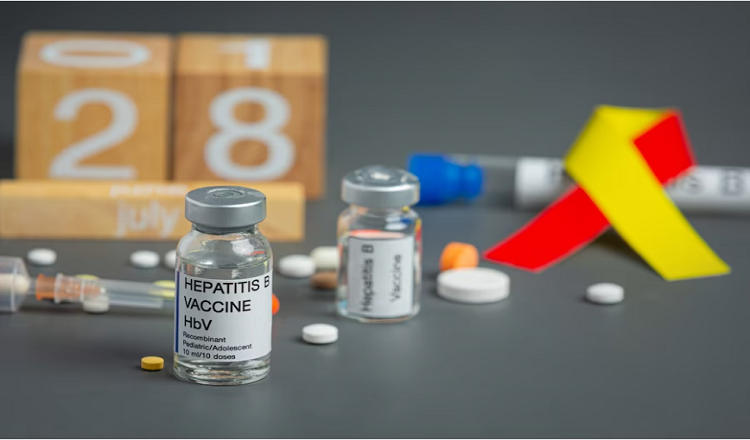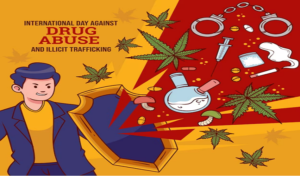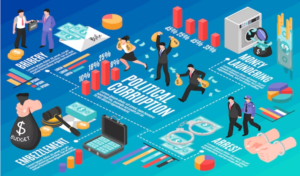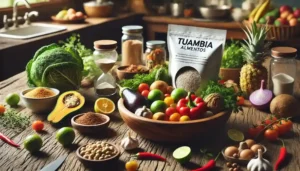The impact of social inequality on the drug trade

Welcome to our latest blog post, in which we’ll talk about social imbalance and how it affects the drug trade in the United States. We all know that the drug trade is a big problem in the U.S., but many people don’t realise that social injustice is a big part of why this problem keeps happening. In this post, we’ll look at the connection between social inequality and the drug trade and talk about why it’s important to deal with this link.
It’s not a secret that the United States has a lot of social imbalance. We hear about it every day in the news and see it every day in our towns. Social inequality isn’t just a moral problem, though. It also has a big effect on the drug trade. Low-income areas, which are often the most vulnerable to social inequality, are hit hard by the drug trade. People in these areas may turn to the drug trade as a way to make money because they don’t have many other options. This keeps the cycle of poverty and inequality going.
So why is it so important to deal with how social injustice affects the drug trade? First of all, it’s about the health and safety of the people. The drug trade is linked to crime, addiction, and other problems that affect everyone, not just those directly involved. Also, if we do something about social injustice, we can make less people want to buy drugs in the first place. It’s a situation where everyone comes out ahead. In the rest of this piece, we’ll look at the link between social inequality and the drug trade in more depth and talk about ways to fix this important problem.
Understanding the US drug trade and social inequality
Social inequality is when different groups in society don’t get the same amount of resources, opportunities, and advantages. In the U.S., there are many different kinds of social inequality, such as economic, racial, and gender inequality. These kinds of unfairness overlap and support each other, making it hard for some groups to get ahead.
The drug trade in the United States is worth a lot of money and has a big effect on society. The drug trade causes addiction, crime, and bloodshed, and it helps diseases like HIV and Hepatitis C spread. It also puts a load on the resources for health care and law enforcement. Also, the drug trade keeps social injustice going because it creates jobs in areas with low incomes and keeps people in a cycle of poverty.
Some communities feel lost and desperate because of social inequality, which makes people more likely to buy drugs. When people don’t have access to education, jobs, or other tools, they may turn to the drug trade to get by. The drug trade can also be seen as a way to avoid the harsh facts of being poor and left out of society. We can reduce the desire for drug trade and make society more fair if we do something about social inequality.
Inequality in the US and drug use go hand in hand.
Inequality and drug use go hand in hand in the United States. People who deal with things like poverty, discrimination, and not having access to schooling and jobs are more likely to use drugs as a way to deal with their problems. They may also be more likely to become addicted, die, or get into trouble with the law because of drug use.
Stats show that this is true. In 2020, the National Survey on Drug Use and Health found that people living below the poverty line were more than twice as likely as those living above the poverty line to have used illegal drugs in the past month. In the same way, people who didn’t finish high school were more likely to use drugs than those who went to college.
The effects of drug use on people and their groups can be very bad. Drug use can cause problems with your body and mind, such as addiction, overdose, and dangerous diseases. It can also lead to theft and violence, as well as put a strain on the resources of law enforcement and health care. Also, drug use can keep people in a circle of poverty and addiction, which can make social inequality worse. To make society more fair and healthy, it’s important to deal with social inequality and drug use.
What the drug trade does to places with low incomes
The drug trade hurts low-income areas of the United States more than other areas. Drug use and crimes linked to drugs are more common in these areas, which can lead to a number of bad things, such as violence, addiction, and the spread of diseases. Drug trade can also break up communities’ social bonds and hurt their economic growth.
The facts are very bad. The Drug Policy Alliance says that drug-related violence and overdose deaths are more likely to happen in areas with low wealth. People in these areas are also more likely to be caught and jailed for drug-related crimes, which keeps them in a cycle of poverty and involvement with the law.
By keeping economic differences in place, the drug trade makes social injustice worse. People in low-income areas might sell drugs as a way to make money and support their families, but this kind of business is often illegal and makes it harder for people to get along with others. The drug trade also takes money away from legal businesses and can make people less likely to invest in low-income areas. Getting rid of social inequality and lowering the desire for drugs can help make communities more fair and prosperous.
Law enforcement’s role in the drug trade and social inequality
Law enforcement is a very important part of the drug trade, and it can have a big effect on social inequality. Police can police drug laws and bring drug offenders to court, but their actions can also make people less equal. When it comes to drug enforcement, police violence and racial profiling can lead to low-income communities and communities of colour being overpoliced and criminalised. This keeps systemic racism and social exclusion going.
Since it began in the 1980s, the war on drugs has had a big effect on social inequality in the United States. The war on drugs has led to a large number of drug offenders going to jail, especially those from low-income and minority groups. This has made it harder for people to get out of poverty and into the justice system. The money spent on drug enforcement has taken money away from social welfare programmes and economic growth in these areas, which has made economic inequality worse.
To fix social inequality, drug enforcement policies need to be changed, and the war on drugs needs to stop. This means doing something about police brutality and racial profiling, putting money into social welfare programmes, and looking at drug use and addiction from a public health perspective.
What the drug trade means for school and jobs
In the United States, the drug trade has a big effect on education and job prospects, especially in areas with low income. Drug use and crimes linked to drugs can hurt the quality of education in areas where they happen. This can cause more kids to drop out of school and make less progress in school. Criminal records linked to drugs can also make it hard to get a job, which can make poverty and social inequality worse.
Stats show that this is true. According to the National Bureau of Economic Research, drug use and crimes linked to drugs can make it harder for people to finish high school and get jobs in the future. People with crime records are also less likely to get a job and make less money than people without records.
The drug trade adds to the cycle of poverty and social inequality by making it harder to get an education and get a job. This keeps people from getting along with each other and keeps them poor. To stop people from using drugs and committing crimes linked to drugs, we need comprehensive solutions that get to the root causes of poverty and inequality. For example, we could improve access to education and job-training programmes and make sure that everyone has the same economic opportunities.
Possible ways to deal with the drug trade and social imbalance in the US
In order to deal with social inequality and the drug trade in the US, we need comprehensive answers that get to the root causes of poverty and exclusion. Investing in social aid programmes like education and job training and taking a public health approach to drug use and addiction are two possible ways out. Restorative justice programmes and community policing are two examples of community-based methods that can help build trust between law enforcement and the community and make everyone feel like they belong.
By addressing the reasons why people use drugs and commit crimes linked to drugs, these ideas can help lessen the effect of social inequality on the drug trade. By putting money into social aid programmes and community-based solutions, we can give people the tools and resources they need to break out of the cycle of poverty and isolation. Also, taking a public health approach to drug use and addiction can help lessen the shame that comes with it and make it easier for people to get help and treatment.
To deal with social inequality and the drug trade, you need a comprehensive and team-based plan that focuses on the reasons of poverty and exclusion. By working together, we can make places that are more fair and welcoming, where everyone has a chance to do well.
Conclusion
In the end, this piece looked at how social inequality and the drug trade in the US are linked. We’ve looked at how social imbalance makes drug use and drug-related crime worse, especially in low-income areas, and how it keeps people poor and alone. We have also talked about how law enforcement and the war on drugs contribute to social inequality and make it harder for people to get an education or a job.
It’s clear that the best way to deal with social inequality and the drug trade in the US is to take a broad, team-based approach that gets to the root reasons of poverty and exclusion. This means putting money into social welfare programmes, taking a public health approach to drug use and addiction, and pushing for answers that come from the community.
It’s important for people to do something about these problems. This can be done by helping community-based groups that work to bring people together, pushing for policy changes that put equity and social justice first, and talking to others about the effects of social injustice and the drug trade. Together, we can make places that are more fair and welcoming, where everyone has a chance to do well.
Read More You May Like:








